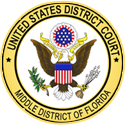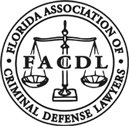Tampa Family Lawyers
The Skills and Experience to Handle Your Florida Family Law Matter
When you have a family law matter pending in the greater Tampa area, the Faulkner Law Group, PLLC, is your resource for highly skilled and effective representation. Tampa family lawyer David Faulkner is a Florida Supreme Court Certified family law mediator and a qualified parenting coordinator helping clients through divorce, separation, paternity and related matters. When you have legal needs, the Faulkner Law Group is here to protect you, defend you, and get results that you’ll be happy with.
Full Range of Family Law from Simplified Divorce to Contested Child Custody Battles
Family law matters may start off amicably but soon go off the rails as parties get into the details and disagreements start to surface. Other times, divorce or custody disputes are highly contested, emotional affairs from the start. The Faulkner Law Group can help you resolve your family law matter coolly and deliberately, making rational decisions that meet your needs and protect your rights. Tampa family law attorney David Faulkner is a Florida Supreme Court Certified Family Law Mediator and a qualified Parenting Coordinator who helps parties address their needs with a resolution that will be voluntarily implemented in the best interests of parents, children and the family as a whole. As an experienced courtroom litigator, Mr. Faulkner is also prepared to mount a vigorous argument in court when needed to get his clients the right result.
Call on the Faulkner Legal Group for help with any family law matter in Tampa, Clearwater or surrounding areas, including:
- Divorce – contested, uncontested, simplified dissolution
- Separation agreements – alimony and child support without a divorce
- Child custody – visitation, parenting plans, time-sharing
- Child support and enforcement
- Alimony and enforcement
- Marital settlement agreements
- Qualified Domestic Relations Orders
- Prenuptial and postnuptial agreements
- Paternity
- Post-divorce modifications
- Parental relocations
Divorce
A divorce in Florida may be contested or uncontested. In either case, the Faulkner Law Group can represent your interests in mediation and courtroom hearings or work with you and your spouse to draft a marital settlement agreement finalizing all the details in your divorce. Our firm also assists couples in filing for a simplified dissolution of marriage if they qualify.
Dissolving a marriage requires making lasting decisions regarding the equitable distribution of marital property, child custody and visitation parenting plans and time-sharing, and the payment of child support and alimony, if applicable. The Faulkner Law Group is here to advise and represent you for a resolution that protects your rights and meets your needs. Our experienced Tampa family law attorney can assist you in obtaining Q.D.R.O.s and other court orders as required, challenging or enforcing prenuptial or postnuptial agreements, and representing you in post-divorce proceedings for the enforcement of court orders for custody and support.
Separation
A couple may split up yet choose not to divorce for a number of different reasons. One or both may have religious objections to divorce, or the couple might wish to stay legally married for economic reasons. Also, the couple simply may not be ready to divorce but may nevertheless need to “take a break” from the marriage while working through personal issues, with the possibility of reconciliation or formal divorce at a later date.
If separating and living apart, it might be important to formalize certain arrangements. Florida law does not provide for legal separation per se, but there is a process to get spousal support, child support and an enforceable parenting plan and time-sharing agreement in place, even without divorcing. Either spouse can seek these orders in court, which may require a formal hearing if the spouses don’t agree on how these matters should be worked out. The Faulkner Law Group can represent you in this process, as well as counsel you on your options, including whether filing for divorce might be preferable to seeking adjudication in court while staying married.
Paternity
If the parents aren’t married when a child is born, unless they take steps to acknowledge paternity, the child does not have a legal father. Without officially establishing parentage, the father can’t enforce legal rights to participate in parenting and time-sharing, and the mother can’t force the father to help support the child financially. Without a voluntary acknowledgment of paternity, establishing parentage may require going to court and proving paternity. Whether you are seeking or challenging paternity, the Faulkner Law Group provides able and effective representation in contested and uncontested paternity proceedings, from mediation and settlement agreements to courtroom hearings.
Modifications
When granting a divorce in Florida, the judge issues final court orders regarding custody, support and alimony. However, if circumstances change significantly due to unforeseen events that are expected to continue for some time, it’s possible to go back to court for a modification of those orders. Changes that may justify a modification of alimony or child support include an increase or decrease in either party’s incomes, a change in the child’s needs, or if a party receiving support remarries or moves in with another. A change in the child’s needs or a proposed parental relocation may also require revisiting the time-sharing plan. Even if the parties agree to a change, any modification of court orders requires the approval of the court. If a proposed modification is contested, the party seeking the modification needs to prove their case in court. The Faulkner Law Group represents parties seeking or opposing post-judgment modifications of child custody, child support or alimony in courtrooms across Hillsborough, Pinellas, Polk and Pasco counties.
Tampa Family Law FAQs
Below are answers to frequently asked questions we commonly field at the Faulkner Law Group as we help individuals and families handle family law issues in the courts of Hillsborough, Pinellas, Pasco and Polk counties. Read below so you’ll go into your Florida divorce, child custody dispute, paternity hearing or other family law matter armed with the knowledge you need to protect your rights and achieve an excellent outcome. If you have other questions, call the Faulkner Law Group at 813-544-3919 for a no-cost, confidential consultation.
When can we get a simplified dissolution of marriage?
The simplified divorce process allowed by Florida law is available for an uncontested divorce that meets certain legal criteria. There can’t be any minor children in the family, and the wife can’t currently be pregnant. At least one of the spouses must meet the residency requirement of six months’ residence in the state. The parties must agree on how they want the property division to go, and neither spouse should be seeking alimony from the other spouse. The parties must agree on an uncontested divorce and agree to waive the financial disclosures otherwise required in a Florida divorce.
If all of these criteria are present, the Faulkner Law Group can help you draft a marital settlement agreement for court approval and shepherd your case through the simplified dissolution process.
What is a Q.D.R.O. and when do I need one?
A Q.D.R.O. is a Qualified Domestic Relations Order. It is required to divide a retirement plan or pension plan governed by ERISA, a federal law covering most private pensions. Contributions to and earnings in a retirement or pension plan that occurred during marriage may be marital property subject to equitable distribution in a divorce. The divorce court may divide the plan according to Florida’s equitable distribution law, but the plan administrator needs a Q.D.R.O. before the administrator will direct payments to anyone other than the employee. The Faulkner Law Group requests or drafts Q.D.R.O.s as needed for alimony, child support or property division in a Florida divorce or separation, designating the former spouse or child as an alternate payee when necessary.
What kinds of alimony are there in Florida?
Florida recognizes four different types of alimony or spousal support that the court may award in a divorce, depending on factors such as the length of the marriage, the standard of living established in the marriage, each spouse’s financial resources and earning capacity, and how much each spouse contributed to activities such as managing the household, taking care of the children, or helping the other spouse build a career. The different types of alimony in Florida are:
Bridge-the-Gap – Up to two years of support to help a spouse with identified needs necessary to transition to single life.
Rehabilitative – Financial assistance for a spouse to get the education, training or employment experience necessary to become self-supporting.
Durational – Alimony awarded for a defined period up to the length of time the marriage lasted.
Permanent – An indefinite award for a spouse who can’t become self-supporting after a lengthy marriage, typically 17 years or longer.
What are the requirements for a valid prenuptial or postnuptial agreement in Florida?
To be valid and enforceable, marital agreements must meet the following criteria: They must be in writing and signed by both parties. The agreement must be entered into voluntarily, without any coercion, duress or fraud, and it can’t be so overly one-sided that it is deemed unconscionable. Before signing, each party should receive a fair and reasonable disclosure from the other party about their assets and debts, unless a party waives the right to receive this disclosure. Prenuptial and postnuptial agreements can be challenged under any of those grounds in court, necessitating a hearing where the judge will decide if the agreement is valid and enforceable.
Can I move to a new place and still keep custody of my kids, so long as I stay in the state?
Any move that is 50 miles or more from your previous residence and lasts for at least 60 consecutive days is considered a parental relocation, which means you cannot move without going to court first. If your co-parent agrees with your move, the Faulkner Law Group can help you draft an agreement with a revised time-sharing schedule. We’ll help you submit this agreement to the court for ratification and updated court orders.
If your co-parent objects to the move, you’ll need to file a petition to relocate in court. The judge will hold a hearing where you’ll need to justify your reasons for the move, and the other parent can provide arguments about why the move shouldn’t occur. The Faulkner Law Group represents parents seeking or challenging a move-away in family law courts in Hillsborough, Pinellas, Polk and Pasco counties.
Your Tampa Family Lawyers, Here when You Need Us
At the Faulkner Law Group, we understand that legal issues can arise at any time, and you may need advice or representation that cannot wait. That’s why we make ourselves available 24 hours a day, seven days a week. We represent clients from Tampa to Clearwater and throughout Hillsborough, Pinellas, Polk and Pasco counties. Your initial call is free, and we offer a variety of fee structures and accept all major credit cards. Call 813-544-3919, or contact us online, and get started now achieving success with your Tampa family law needs.











